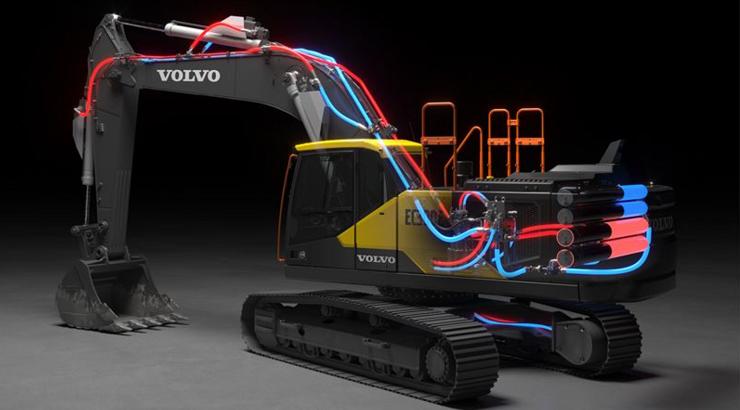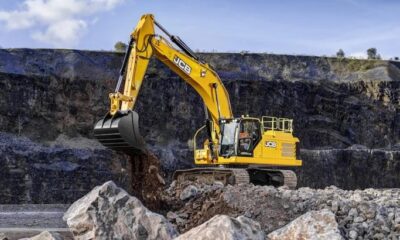Heavy Equipment
Volvo’s Plan to Turn Excavators Into Cost-Saving Machines
New excavator system promises to cut energy losses.

Volvo Construction Equipment (CE) has developed a ground-breaking system that seeks to radically cut energy losses while improving fuel efficiency for its range of excavators.
The electro-hydraulic system, which is on trials in the field, is part of Volvo’s e-mobility program to increase fuel efficiency and attain its goal of net-zero emissions operations.
To cut energy losses in hydraulics, all of the excavator work functions are connected to an energy storage through a common pressure rail made up of two or more pressure lines.
The hydraulic energy storage, which is made up of hydraulic accumulators, aids energy-efficiency recovery of kinetic energy and peak power supply.
For the excavator’s cylinder-driven functions, ‘smart actuators’ are used to realise energy-efficient conversion from hydraulic power to variable force and speed.
Energy recovery
Variable hydraulic machines have been introduced to allow energy recovery while improving performance of the excavator’s rotating loads such as the swing function.
RELATED: Volvo Sells 1m Toys During Worst Months of Pandemic
Volvo says its team from Sweden and South Korea worked with Finnish hydraulic cylinders maker Norrhydro in the research project, leveraging an idea born out of academic alliances.
“This innovation enables Volvo CE to offer its customers a truly unique electro-hydraulic solution, pushing fuel efficiency to new levels, says Lars Stenqvist, CTO Volvo Group.
“It’s demonstrating the passion of our engineers to bring forward customer-oriented solutions that will drive the transformation towards net-zero emissions operations.”
Carbon footprint
Kim Heybroek, Volvo CE Emerging Technologies Research Engineer, said the electro-hydraulic system will help customers to cut costs while reducing their carbon footprint.
“The potential in the innovation has been a strong driver for us in the project as we see the significant benefits it will offer for our customers,” Kim said.
Due to significant reduction of energy losses and the power input from hydraulic accumulators, a small power source can be used on an excavator.
Besides, the need for cooling is greatly reduced.
And where bigger power source is available, cycle times can be shortened – for instance when loading a truck. This boosts efficiency while lowering operational costs for the client.












